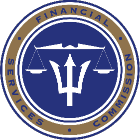
General FAQs
The Financial Services Commission is a regulatory authority responsible for supervising and regulating non-bank financial institutions in Barbados. Its mandate includes ensuring the safety, soundness, and integrity of the financial system, thereby protecting consumers and maintaining public confidence.
The Commission oversees several sectors, including:
- Insurance: Regulation of insurance businesses operating within or from Barbados.
- Credit Unions: Supervision of credit unions to ensure their safety and soundness.
- Securities: Oversight of the capital market and investment fund industry under the Securities Act and Mutual Funds Act.
- Pensions: Supervision of occupational pension plans registered under the Occupational Pension Benefits Act.
You can verify the licensing status of a financial entity by accessing the "Regulated Entities" section on our website. This resource provides a comprehensive list of entities licensed and regulated by the Commission
The Commission provides guidelines and requirements for regulated entities to maintain robust cybersecurity measures. This includes mandatory reporting of cybersecurity incidents and adherence to best practices to protect sensitive financial data.
The Commission regularly publishes news, press releases, and updates on our official website. You can visit the "News & Press Releases" section to stay informed about the Commission's activities and announcements.
Occupational Pensions
The FSC supervises and regulates occupational pension plans (OPP) and occupational registered retirement savings plans (ORRSP) under the OPBA.
The Commission does not regulate registered retirement savings plans established by individuals or the NIS.
The Commission does not regulate registered retirement savings plans established by individuals. Pension plan members can review the FSC’s website to ensure that the pension plan which has been established by their employer, is registered with the FSC.
An OPP or ORRSP is a pension plan which meets the following criteria:
- The employer has established a pension plan for employees of the company
- The employer makes contributions for employees (Contributory or non-contributory from the employee’s perspective)
- Even if the pension plan is established outside of Barbados, most members must be connected to Barbados as residents or citizens of Barbados
This also includes a pension plan that is established for persons employed outside of Barbados but there is a substantial connection with Barbados.
Single-Employer Pension Plan
A Single-Employer Pension Plan is a pension plan that has been established by one employer for the employees of that company.
For example: ABC Company Limited Pension Plan is organized and administered to provide pension benefits for the employees of ABC Company Limited.
Multi-Unit Pension Plan
A Multi-Unit Pension Plan is a pension plan organized to provide pension benefits for the employees of two or more affiliated employers. Overall, with this type of plan, employers must have a relationship through the organisation’s structure e.g., branch, sister company etc.
For example: LIFE Holdings Limited Pension Plan is organized and administered to provide pension benefits for the employees of LIFE Holdings Limited., LIFE Distribution Ltd. and LIFE Bar and Bistro Ltd.
Multi-Employer Pension Plan
A Multi-Employer Pension Plan is a pension plan organized to provide pension benefits for the employees of two or more employers who are non-affiliated or have no relationship with each other. However, the pension plan was established to provide pension benefits for various employers.
There is no relationship among the participating employers of the multi-employer pension plan and the establisher of the pension plan.
Defined Benefit
A defined benefit (DB) is a pension benefit determined in advance by reference to various factors, including the level of earnings, length of service and a multiplier factor (determined by the actuary).
Defined Contribution
A Defined Contribution Pension Plan (DC) means a pension benefit is determined solely concerning accumulated contributions made by or for a member’s credit, together with the yield on such accumulated contributions, and that is determined on an individual account basis. The employee is responsible for choosing the investments offered to the plan, and a member will not know the amount of their ultimate pension benefit until they retire. Benefits at retirement depend on how much was contributed and how well the pension fund’s investments performed.
Hybrid/Combination
A hybrid or combination plan is a pension plan comprising of both DB and DC provisions. The pension plan rules govern the operation of each section (DB and DC). Figure 7 below provides an illustration of the types of pension benefits.
The FSC regulates pension plans by ensuring compliance with the Occupational Pension Benefits Act, monitoring their financial health, and overseeing the registrations, amendments, and wind-ups of pension plans to protect members' interests.
A 'Member' is an employee entitled to benefits or a refund of contributions from the pension plan due to their employment.
An 'Active Member' continues to accumulate pension benefits within the plan and is still employed by the employer of the pension plan.
A 'Deferred Member' is someone who no longer accumulates benefits within the plan and is generally no longer employed by the employer of the pension plan.
A 'Pensioner' refers to a member who is receiving pension benefits and is no longer employed by the employer of the pension plan.
Based on the rules of your pension plan, you may be allowed to take a portion of your pension as a lump sum before or upon retirement. The limit within the Act is 25%, however, it must be stated within your plan rules for you to benefit from this provision.
Additional voluntary contributions are contributions made by a pension plan member that exceed the amount that they are required to contribute.
Yes, you can retire early if you're within 10 years of the normal retirement age. For instance, if the normal age of your pension plan is 65, you can retire as early as 55.
Early retirement usually means a reduced annual pension, as you will receive payments over a longer period. However, the total pension amount remains the same.
Depending on the terms of your pension plan, if you leave your job before retirement:
- your pension may be deferred,
- you may be able to place it into an individual registered retirement savings plan or
- it may be rolled over into another retirement plan.
Credit Unions
A credit union is a member-owned financial co-operative that operates on the principle of people helping people. Its members pool their funds, which are then available for loans to other members. As a not-for-profit organization, a credit union does not have customers; rather, everyone who joins becomes a member and owner. This ownership is represented by shares purchased when the member joins.
The primary function of a credit union is to serve its members. This means providing them with a safe, convenient place to save and borrow at reasonable rates. When you join a credit union, you become a member and a part owner through your investment in qualifying shares. You have the right to attend all general meetings of the credit union and participate in decision making which influences the operations of the credit union.
The FSC supervises credit unions as part of its mandate to protect the safety and soundness of the financial system. It assesses new applicants, approves changes within the credit union, conducts on-site examinations of risk management practices and initiates enforcement action where needed. It also develops tools and models to assess entities within a risk-based supervision framework, as well as guidelines to help credit unions manage risk.
The FSC keeps an open line of communication with its stakeholders, including credit unions and representative bodies, like the Barbados Co-operative & Credit Union League Limited. The FSC shares data and information about the sector periodically via its website and presentations. It also collaborates with domestic, regional and international credit union regulators.
To avoid delays, credit unions should submit a complete application package with all required documentation. Incomplete applications require additional follow-ups, which can slow down the approval process.
Credit unions interested in amalgamation should first contact the FSC’s Credit Union Division. The process requires approval from both credit unions’ members and subsequent regulatory assessment by the FSC to ensure compliance with legal and financial standards.
The FSC’s Corporate Governance Guideline allows credit unions to elect qualifying members who meet established criteria while maintaining the traditional member-elected governance model.
The AGM is a key event where members:
- Receive updates on the financial performance of the credit union
- Elect board members and supervisory committees
- Approve financial statements and annual reports
- Decide on surplus allocation
Members should first bring their concerns to the Supervisory Committee of the credit union, which is required to have a complaint-handling process in place, following FSC guidelines.
If an account remains inactive for more than 10 years, the credit union must:
- Publish a notice in the Official Gazette and a local newspaper
- Send a notice to the last known address of the member
- Hold the funds securely until claimed by the member or a beneficiary
The FSC ensures that credit unions comply with their legal obligations, such as:
✔️ Holding Annual General Meetings (AGMs)
✔️ Seeking member approval for major decisions
✔️ Providing timely and transparent financial information
If deficiencies are identified, the FSC may:
- Require corrective action to address the risk
- Implement enforcement measures if issues are not resolved
- Develop and update risk management standards for compliance
The FSC provides guidance and regulatory standards to help credit unions manage risks, including:
✔️ Fit and proper requirements for leadership
✔️ Investment guidelines
✔️ Liquidity and capital adequacy standards
✔️ Approval processes for by-law amendments
The FSC is a member of both organisations, which foster collaboration among global and regional credit union regulators to share best practices and enhance oversight.
Insurance
Barbados has been a leading international business domicile for nearly 40 years, offering a robust regulatory framework and an extensive Double Taxation Agreement (DTA) network. The jurisdiction is among the top 10 captive domiciles globally, providing businesses with:
- A stable political and economic environment
- A well-educated and skilled workforce
- Presence of top-tier professional services, including the ‘Big Four’ accounting firms
- Regulatory integrity – Barbados upholds high standards of excellence, transparency, and accountability
The FSC’s Insurance Department is responsible for the supervision and regulation of insurance entities operating from Barbados. Our key responsibilities include:
- Assessing and approving insurance applications
- Monitoring compliance with the Insurance Act
- Ensuring financial solvency of insurers
- Protecting policyholder interests
- Providing industry statistics and regulatory guidance
- Domestic insurance companies issue policies to policyholders within Barbados and operate under local financial regulations.
- Non-domestic (offshore) insurance companies are licensed in Barbados but provide insurance services to policyholders outside of Barbados, with no direct interaction with local financial institutions.
Captive insurance companies in Barbados can take several forms:
- Single Parent Captive – A captive insurer owned by one company to insure its own risks.
- Group Captive – An insurer owned by multiple companies to share risks among members.
- Association Captive – Insures companies within the same industry or franchise.
- Segregated Cell Company (SCC) – A structure where separate ‘cells’ within one entity have their own assets and liabilities.
- Incorporated Cell Company (ICC) – Similar to an SCC but each cell is a separate legal entity with its own board and governance structure.
Captive insurers in Barbados originate from diverse sectors including healthcare, transportation, real estate, financial services, and professional services.
The FSC issues three types of insurance licences under the Insurance Act, Cap. 310:
- Class 1 Licence – For insurers underwriting related-party business (captive insurers).
- Class 2 Licence – For insurers underwriting third-party risks.
- Class 3 Licence – For insurance intermediaries, management companies, and holding companies.
The FSC processes various applications, including:
- Registration of new insurance entities
- Requests for Letters of Good Standing
- Regulator-to-Regulator requests
- Applications to conduct new classes of business
- Transfer of shares and acquisition of significant interests
- Exemptions and extensions for financial reporting requirements
- Approval of auditors, actuaries, and admissible assets
The registration process involves:
✔ Submission of an application package, including:
- Cover letter, completed application forms, business plan, and required fees.
✔ FSC review and assessment of business structure, ownership, and risk profile.
✔ Approval and issuance of licence, subject to regulatory compliance.
Applicants must demonstrate that their business is legitimate, financially sound, and poses no reputational risk to Barbados.
To maintain high regulatory standards, the FSC is a member of key international insurance regulatory bodies, including:
Group of International Insurance Centre Supervisors (GIICS) – Oversees captive insurance and international insurance businesses.
International Association of Insurance Supervisors (IAIS) – Sets global insurance regulatory standards across 200+ jurisdictions.
Caribbean Association of Insurance Regulators (CAIR) – Supports regulatory collaboration among Caribbean nations.
These affiliations ensure Barbados remains aligned with international best practices in insurance supervision.
Securities
Securities are tradable financial assets, including shares, bonds, notes and other investments. They represent ownership or debt in a company or government entity.
What is considered a security for the Barbados context can be found defined in our legislation.
The Financial Services Commission regulates and supervises the securities industry in Barbados. This includes registering or licensing entities and professionals, monitoring their compliance with regulations, ensuring fair access to, and transparency in, the securities markets, and protecting investors.
Any company or individual conducting securities business in Barbados, including Self-Regulatory Organisations (Securities Exchanges and Central Securities Depositories), investment advisers, brokers, traders, underwriters, dealers, mutual fund administrators and mutual funds, must register and comply with the relevant legislation and Guidelines of the Financial Services Commission.
You can verify registration or licensing by visiting the FSC website and viewing our regularly updated Register of Licensees, or by directly contacting the FSC.
If you suspect fraudulent or suspicious activities within the securities sector, you should promptly report this to the FSC at securities@fsc.gov.bb, or call directly at the number listed on our website.
The FSC may take enforcement actions such as issuing Directives, suspending or revoking registration or licenses, and legal proceedings if necessary. Our primary goal is to safeguard investors and uphold market integrity.
All FSC-issued Guidelines, statutory reporting requirements, and regulatory information are available on the FSC website under the ‘Industry Guidelines’ section.



